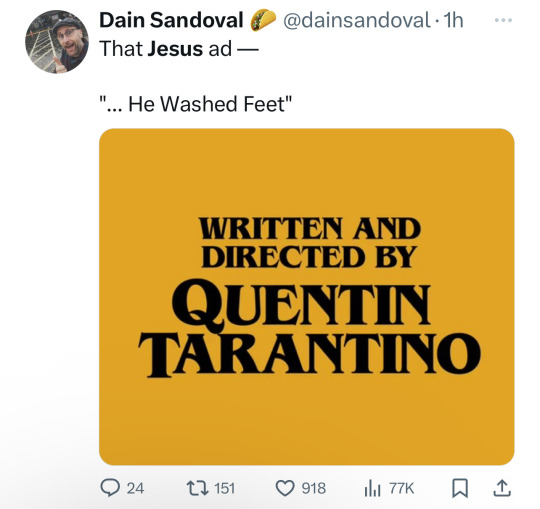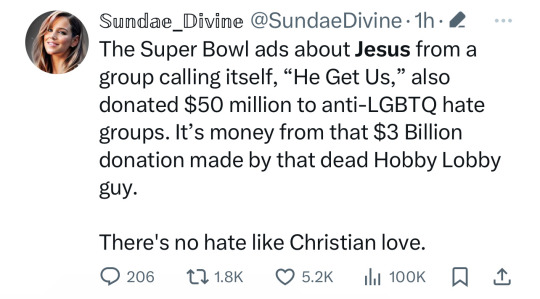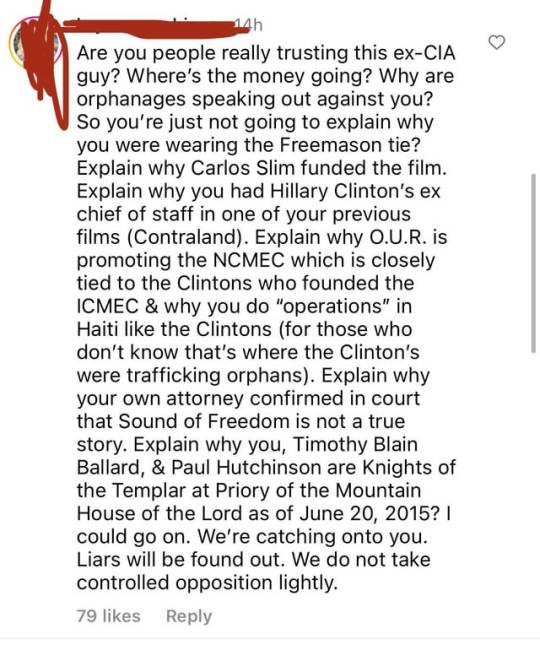#defend freedom
Text
🥇🥇🥇
#parking tickets#defending yourself#courts#contracts#corporation#human rights#know your rights#defend freedom#justice#governments#please share#truth#wwg1wga
8 notes
·
View notes
Text
MO GOP REP Vicky Hartzler broke down in tears trying to prevent the full legal recognition of gay marriage in the US. This makes it clear to me there must be a conservative cabal conspiring to undo freedom, liberty, and justice through the courts.
youtube
Defend freedom, defend love. We must make it law through legislative action, we cannot count on the courts.
1 note
·
View note
Text

i'm just saying, they're all disney and this boy could use a princess emotional support group
#newsies#livesies#newsies broadway#jack kelly#disney princesses#this is just pure silliness but also i will defend this boys dreams with my life#he deserves to go to santa fe#to live the life he dreamed of#and have people SUPPORT HIM#he wants a new start and freedom and i think he deserves it
779 notes
·
View notes
Text
Unpopular opinion about tbosas: I think that Coriolanus Snow loves Lucy Gray Baird.
A more unpopular opinion: I think that Lucy Gray Baird loves Coriolanus Snow.
That's the real tragedy. Their feelings were true. Always.
#don't come at me with “it's not love it's possessin” or some other bullshit#clearly you don't understand that different feelings can cohexist in the same person and in the regard of the same person#yes coryo want to own her#doesn't mean his love was untrue#yes lucy gray at the end went away and put her freedom and her life above love#doesn't mean that she didn't love him#people are complex#coriolanus snow#lucy gray baird#I will defend their love until the end#this is my hill and i will die on it#snowbaird#lucy gray x coriolanus#coriolanus x lucy gray#the ballad of songbirds and snakes#tbosas
543 notes
·
View notes
Text

🧐
#Now he has to panic#Because WHERE THE HELL IS THAT PU K IF HE ISN'T ALREADY IN JAILL?#Bucky gotta keep his boy safe#He supports Steves righteousness so he does the protecting Steve part#Then Steve can safely defend freedom#steve rogers#stevebucky#james barns#james buchanan barnes#white wolf#chris evans#stucky#bucky imagine#sebastian stan#steve bucky
594 notes
·
View notes
Text






This is definitely a trend for the hateful, christofascist, religious reich. Hobby Lobby did the same thing at previous Super Bowls.


It’s right wing, Islamophobic, homophobic, anti-abortion Christian nationalism, masquerading as “caring” religion.

The Servant Foundation: the power behind the ads
The $20 million "He Gets Us" campaign about Jesus - is funded by an influential donor to some of the most active and litigious Shadow Network groups working to undermine church-state separation.
The Servant Foundation
The Servant Foundation, also known as The Signatry, is behind the “He Gets Us” ad campaign that debuted during the 2023 Super Bowl. Over the next three years, the Servant Foundation plans to spend “about a billion dollars” toward this public relations campaign. They’ve hired a PR firm to address, in the firm’s words, the problem of “How did the world’s greatest love story in Jesus become known as a hate group?”
Of course, they’re the cause of their own problem – not only has the Servant Foundation funded hate groups, but the PR firm, Haven, has represented these organizations. Key Shadow Network members Focus on the Family and Alliance Defending Freedom are in their portfolio. ADF is a noted anti-LGBTQ hate group that has argued repeatedly in courts that religion, and specifically Christianity, is a license to discriminate; they have one such case pending before the Supreme Court right now.
The money trail
The Servant Foundation is one of ADF’s biggest financial backers. A recent exposé reports that, “between 2018-20, the Servant Foundation donated more than $50 million to the Alliance Defending Freedom and that those contributions “were among the five largest donations given out by the foundation in each of those three years.”
Other recipients of the Servant Foundation’s billion dollars in assets include:
Nearly $8 million went to Answers in Genesis, creationist Ken Ham’s fundamentalist ministry behind the Creation Museum and Ark Encounter, an organization that has been championed by Speaker of the House Mike Johnson, a former ADF attorney.
Over $1 million was designated for the anti-LGBTQ Campus Crusade for Christ (rebranded as “Cru” since 2011).
$374,800 went to Al Hayat Ministries, an organization that seeks to “respectfully yet fearlessly unveil the deception of Islam,” and runs an Arabic-language Christian satellite TV station with the goal of converting Muslims to Christianity.
In 2020 alone, we found donations to prominent Shadow Network members American Center for Law and Justice, First Liberty Institute, and Liberty Counsel.
(continue reading)
#politics#super bowl#republicans#christian nationalism#lgbt#homophobia#christofascism#religious reich#lgbtq#jesus gets us#the servant foundation#no hate like christian love#the signatry#alliance defending freedom#adf
184 notes
·
View notes
Text






#tv: star trek: deep space ine#ds9edit#trekedit#kira nerys#kira x odo#kiraodo#kira nerys is so important guys#okay here we go#this is true#it is important that when you give people the freedom to choose#you also give them the freedom to choose wrong#however#this episode also points out that it's important not to allow that to rob you of your will to act when it's necessary#winn is a very manipulative corrupt and immoral person determined to collect and viciously defend any power she gets her hands on#kira knows this#her lover was sacrificed for winn's ambition and for the fact that her reach often exceeds her grasp#kira shakkar and most of bajor spends this episode fighting against her growing fascist attempts to impose her personal sense of order#so while yes it is important and necessary that people be allowed to make the wrong choice#it is also necessary not to allow disappointment over that fact to make you complacent#when you can you still need to stand up for what's right#and fighting fascists is always right#things i made
137 notes
·
View notes
Text
💥💥💥
#fbi corruption#fbi#scammers#corruption#dirty politics#senate#public hearings#russia#exposing the deep state oligarchs#justice is coming#crimes against humanity#these people are evil#speaktruth#fight for justice#standup#speak up#truth#please share#wwg1wga#defend freedom#stand up for truth#saving America from the deep state oligarchs#MAGA
4 notes
·
View notes
Note
Saw your comment on a post about Sound of Freedom and I came here to say.....shame on you. Shame. On. You. Since when is child trafficking a political issue? Since when is calling pedophilia bad a political issue? If you have a problem with this movie then maybe YOU'RE the problem. No better than the big Disney fat cats who tried to suppress this movie and keep it shelved. Or theaters messing with the ac and saying seats are sold out when they're empty. Shame on you! God's children are not for sale!
I wish people would do a little more research on this topic. If Hollywood and the "powers that be" didn't want this movie being seen, it wouldn't have been released in over 3000 theatres countrywide. It's being shown in major and minor locations all across America and Canada, and the vast majority of those locations aren't having any problems.
Case and point, my own mother and her friend went to see it last week and everything was fine. No issues whatsoever and the seats were packed. The movie isn't being "suppressed". This is all a marketing gimmick from the production company Angel Studios, a Christian streaming service. The movie is jam-packed with lies and only serves to glorify Tim Ballard, the man the movie is based on, and Christianity as a whole. I truly wish this wasn't political, but it is. They made it political.
Tim Ballard has provably exaggerated or fabricated many, if not most of his "rescues", and his organisation, Operation Underground Railroad, has been widely criticised by professional anti-sex trafficking organizations (including other Christian-based ones) for years. He has accumulated millions of dollars for his so-called "non-profit" organisation, and he runs several for profit organisations on the side. Most of this money is presumably pocketed by Ballard and his cohorts, as millions is unaccounted for and only a sliver goes to OUR. It's not about "saving children", it's about money and spreading Ballard's religious ideology.
This is compounded by the fact that Ballard, before he left the CIA, was almost always the last officer to arrive on any scene where child sex trafficking was involved, yet he somehow has hundreds of stories where he's singlehandedly rescued children. In fact, the "true story" the film is based on, where Ballard apparently saved a five year old boy—who, by Ballard's own account, ran up to him, hugged him, and begged to be taken away—didn't even happen. According to court receipts from the arrest and trial of Earl Venton Buchanan (the pedophile in possession of the little boy), Ballard arrived at the scene long after the boy was rescued and taken into custody, and he was barely involved. The documents can easily be found online under the San Diego incident reports.

Ballard was also caught lying about saving one particular girl named Liliana, the literal poster child for OUR. As it turns out, Liliana rescued herself by escaping her captors when she was seventeen and being trafficked in New York. Even more egregious, every time Ballard told her story, he would lower her age to garner more sympathy ... as if her being seventeen wasn't sad enough. In one instance, he claimed she was 14. In another, he claimed she was 11. Ballard also exploited Liliana's story as a reason for needing stricter border patrols and a better wall, despite the fact that she was being abused in America. There is no evidence to suggest OUR had anything to do with her rescue.
Ballard and his "organisation" have even ruined entire legitimate rescue operations in other countries and put children at risk, like in the Dominican Republic, where he endangered the lives of 26 girls by playing vigilante, being followed around by a camera crew, and causing a shootout that effectively traumatised the children he used as a prop to lure in buyers. His response to the mishap and rightful criticism by the Dominican police was basically, "Well ... you win some, you lose some."
The children were released without receiving any therapy or rehabilitative care, and Anne Gallagher, the leading global expert on the international law on human trafficking, said that OUR has an "alarming lack of understanding about how sophisticated criminal trafficking networks must be approached and dismantled" and went on to call the work of OUR "arrogant, unethical, and illegal". Those children easily could've been shot and killed. This occurred in 2014, but Ballard still insists that his "rescues" be filmed, and he even pitched it as a reality TV show. His reasoning for this, he says, is to "spread awareness", but we all know it's because he loves the spotlight.
Entire law enforcement agencies have actually cut ties with or even condemned OUR, such as Washington State Law Enforcement, as a result of Ballard's proclivity to conflate child sex trafficking with consensual adult sex work. Ballard and OUR regularly set up sting operations and lambasted the men who showed up for kink play, publicly branding them as pedophiles, even though the men in question were under the impression that they were meeting for sex with consenting, adult women. This led to several lawsuits against OUR, all of which they rightfully lost.
Ballard's means of gathering intelligence is also questionable, as he, by his own admission, sometimes consults psychic mediums for information on missing children and asks where they're being held captive. I genuinely wish I was joking about that.
The main actor in Sound of Freedom, Jim Caviezel, also has ties to the Qanon movement, and Caviezel himself is a hardcore conspiracy theorist. He believes that Donald Trump is "the new Moses" and that "liberals [literally] drink the blood of children". This is ironic, considering Caviezel and Ballard both met Trump several times, yet never pressed him for information regarding Epstein's client list. Moreover, Caviezel and Ballard both donate to the Catholic Church, which funds the largest child sex trafficking ring on the southern border and has a history of rampant sexual abuse of children. Even more insane, Caviezel admitted to watching child porn, to apparently "get in character" for the movie. He claimed that if Ballard had to watch it, it only "made sense" that he'd have to watch it, too. To "motivate" him to fight child trafficking.
...Alright, bud.
Surprise, surprise, both men are also outspokenly anti-LGBTQ+, despite the fact that children/teens in that community are statistically more likely to be trafficked. The majority of child trafficking is not the result of random kidnappings, as the movie would have you believe. The majority of children are actually recruited into sexual exploitation by a family member or friend/boss. The majority of those children are also not generally passed around in Mexico, like this racist, white savior-oriented movie would have you believe, but they actually either stay in or end up in America. America is, in fact, the largest consumer of child porn and child sex slaves this side of the globe (and nearly the largest producer), yet the movie depicts almost every pedophile as Mexican or some other non-white race.
At the end of the movie, Ballard comes on screen and asks people to donate/buy tickets for others, so that the movie can spread awareness. This is why so many seats in certain theatres are empty, despite websites saying the seats are sold out. Whether or not Angel Studios is also shadow purchasing tickets to boost sales can't be proven, obviously, but I wouldn't put it past them. These "conspiracies" have all served to market the movie and boost ticket sales.
As for Disney trying to keep the movie shelved, that's also a lie. Yes, Disney did technically shelve the movie when they bought Fox, since it didn't exactly correspond with its family-friendly brand, but they had no problem with the movie being released under a different studio. The actual reason Sound of Freedom was in "production hell" for five years was because Tim Ballard kept trying to milk donations. Despite the fact that filming wrapped up in 2018, he kept asking for more and more and more. He used people's faith and understandably emotional response to something as wicked as pedophilia to rake in millions. That's what Ballard is really about, money and stardom. In the movie, there's even a post-credit message where Jim Caviezel says the movie was held back to "maximize its distribution and raise awareness about child sex trafficking".
Translation: Ballard greedy.
Ballard himself admitted the accuracy of this movie "isn't important", and that he just wanted to get the movie out to "spread the word". By that, he of course means the Christian word—but why should fighting child sex trafficking be tied to religion? At the end of the day, Sound of Freedom is a vanity project, and it spreads incredibly dangerous misinformation. Stranger still, Ballard left the OUR just prior to the debut of Sound of Freedom, a fact he's neglected to mention in every interview regarding the movie. It's not clear why he left, but it seems that he fled after an internal investigation into the organisation began. That's not too suspicious or anything. My guess is authorities are trying to find out were all that missing money went, and Ballard doesn't want to be there when they figure it out.
By the way, that final line you hit me with; "God's children are not for sale", the line from the movie that Ballard claims a fellow agent whispered to him while on a case, as well as the title of the movie, which another agent supposedly said to Ballard after a giant rescue operation—those were lies, too. No agents ever said that to him. The police reports for those cases, as well as the agents Ballard supposedly quoted, all said he was the last to arrive on the scene and those conversations never happened.
Ballard cannot be trusted and Sound of Freedom is based on a lie. It's a scam. Everything he does is a scam. All he cares about is spreading his ideology, making money, and looking like a superhero. And this is only the tip of the iceberg. Look into his other companies, and into the ex-military soldiers and police officers who left OUR because of how poorly trained their people are when it comes to rescue operations.

Every sane person knows pedophilia and human trafficking is wrong, but giving your money to Qanon-adjacent, right-wing leaning, LGBTQ+-hating, Catholic Church-sympathising, fame-chasing, money-hungry, perpetual liar Tim Ballard isn't going to help.
The best way to help out is learning about the signs of child trafficking. Keep an eye out for any children that might be getting abused. If you suspect something, report it, don't be a silent bystander. Volunteer within your community to make sure the children in your area have food and resources, support LGBTQ+ youth, and watch the other adults around you to ensure they're not acting inappropriately. You can also donate to social programs that create safe spaces for children and even apply for jobs that specialise in these fields. Don't go to see a movie just because it aligns with your religious beliefs, feel sad for a little while, then sit on your ass and let Tim Ballard handle everything.
#sound of freedom#tim ballard#jim caviezel#christianity#child trafficking#propaganda#angel studios#I can't believe you made me defend Disney
188 notes
·
View notes
Text
How one Christian legal group is shaping policy, from abortion to LGBTQ rights : NPR
The Alliance Defending Freedom has won 15 Supreme Court cases, including overturning Roe v. Wade. New Yorker writer David Kirkpatrick explains the group's influence and their next targets
127 notes
·
View notes
Text











"Found out"
set in kind of a made-up chapter where the girls are in trouble, or something.
#witch hat tag#orufrey#i hate having a strong cinematic image in your mind for months..working hours on it..& at the end looking you have to be like “Sure. :/"#i'm especially unsatisfied with the beginning and the end and how i can't get eyebrows to work as i want#but i dont care any more... this is probably the comic that has given me the most trouble ever i just dont care#i barely even care whatsoever if anyone even sees this..Ugh..but at least i can move on to the next era now#i'm just annoyed i cant get out good enough my image of qifrey flinching bc he thinks oru will hit him but then he is not hit#i feel like sensei will do something along these lines. i want to see what she will do.#there are also other variations i have in my mind. i just want to know#i just don't want it to happen with qifrey on his deathbed or something. but it possibly will. I DONT EVEN KNOW.#i have another very cinematic image in my mind for something sort of along those lines which i will do soon. it never ends...#btw after this is probably my fics. yeah.... i think it has to be my fics. jasmine sort of goes along these lines#i need that space for dialogue. look - i'm a writer. this is HARD for me. so i am really glad i had the space and freedom of words#to process all the feelings. but i tried to get something out in a quick visual space too. <- me defending myself to myself at cai court#anyway going along the lines of 'Jasmine' - they talk this out and argue and cry and oru pushes the hat at him and tells him#why not just erase every memory i have of you then. That would be easier for us all wouldn't it?#they kiss and sob and kiss and lie outside in the flowers for many hours in that one. and then there's 'Deep End' where it turns out#way way way way more time and words is needed for this actually and that's upsetting for everyone.#the destruction of the hat is certainly another path to take. Can you make this work without that hat going up in flames?#something you have always had and have been clinging to will have to be destroyed. You have to lose something now. This is the crux qifrey#I CANT GET IT OUT IN ONE COMIC!!! I CANT DRAW IT OUT!!!! I NEEDED THOSE FICS!!!! PRAISE WORDS!!!! whatever im going to have dinner now
44 notes
·
View notes
Text
These "expert" pediatricians were paid by a far-right legal group to come up with evidence to attack the WPATH transgender standards of care
What this is: Leaked documents show the anti-LGBT legal group Alliance Defending Freedom paying manufactured experts to attack WPATH’s transgender standards of care, asking them to find evidence for harmful anti-trans myths that they knew were baseless and unsubstantiated. This is an original finding and report by Zinnia Jones (she/her), a transgender Florida resident of 11 years whose access to HRT is now jeopardized by the enactment of state law and policy based on work from these same experts.
Detailed summary: From 2019 onward, states across the US have been faced with an intensely active wave of reused anti-trans experts, recurring characters who keep repeating the same spurious arguments against gender-affirming care in court cases, legislatures, and other policy bodies. Where did they come from, and why did this start happening?
Due to the Florida-based anti-LGBT hate group American College of Pediatricians choosing to set one of their Google Drive folders to be publicly viewable by anyone, files were released this month showing the contents of their staff’s communications and other working notes over several years.
These documents included records of the Alliance Defending Freedom - another hate group who are also responsible for bringing the mifepristone case with ACP as a plaintiff - approaching ACP's leaders in 2018 and 2019 to offer them a grant of $10,000 or more. The ADF wanted the pediatricians “to draft a white paper that refutes the WPATH Standards of Care”, “for use in litigation and should also benefit many other allies at State and Federal Level”.
ACP’s president Quentin Van Meter and executive director Michelle Cretella promptly got to work on this “Special Project”, and the ADF hosted expert witness workshops at ACP's conferences. ACP members including Van Meter went on to present anti-trans testimony in several ADF-litigated cases and ADF-involved trans youth care bans.
In May 2022, Van Meter authored a sham report for Florida Medicaid to justify their trans coverage exclusion, mostly drawing from previous ACP position statements; court filings later revealed Michelle Cretella was recommended by the Florida governor’s office, and she pointed the way to all the other anti-trans experts hired by Florida in 2022 to support the Medicaid exclusion of transition care.
One notable document found in the ACP’s drive contains “Transgender Research Requests”, with the ADF asking Cretella and other ACP leaders to “substantiate” now-commonplace anti-trans talking points. These included bizarre claims by the ADF such as “it is normal during adolescence for children to go through a phase when they identify (to some degree) with the opposite sex”, and “For those who have undergone hormone therapy and genital change surgery, a paper that says they are no happier (and perhaps worse off if the research supports it)”.
The ADF was asking this anti-trans group to come up with anything that could support the arguments they were already planning to make.
This appears to be one of the very sites where those baseless myths about suicide, social contagion and other supposed harms, now regularly repeated in court cases and testimony and uncritically accepted by the mainstream right wing, were conceived and gestated.
These same experts then substantially reused these work products in their reports for Florida Medicaid, a public health agency whose accepted standards determination process is supposed to be a transparent and open-ended evaluation of peer-reviewed medical evidence.
Altogether, these documents appear to demonstrate a paid smear by a hate group and right-wing law firm against a leading professional transgender healthcare organization following the best available evidence and medical practices, as well as misconduct on the part of ACP experts who reused this work in their reports for a Florida public health agency.
(asks are open)
#transphobia#transgender#trans#Florida#Florida Medicaid#trans youth care ban#trans care ban#Alliance Defending Freedom#American College of Pediatricians#LGBT#tw transphobia#tw homophobia#Ron DeSantis#Florida GOP#SB 254
253 notes
·
View notes
Text
Revs. Jan Barnes and Krista Taves have logged hundreds of hours standing outside abortion clinics across Missouri and Illinois, going back to the mid-1980s. But unlike other clergy members around the country, they never pleaded with patients to turn back.
The sight of the two women in clerical collars holding up messages of love and support for people terminating a pregnancy “so infuriated the anti-abortion protesters that they would heap abuse on us and it drew the abuse away from the women,” recalled Taves, a minister at Eliot Unitarian Chapel in Kirkwood, Missouri, as she sat on a couch at Barnes’ stately church in this quiet suburb of St. Louis.
“I thought: ‘Whoa, these people really are not messing around.’ But then I thought, ‘Well, I’m not messing around either.’”
So when Missouri’s abortion ban took effect after the Supreme Court overturned Roe v. Wade last year, Barnes and Taves decided to fight back. Along with rabbis and ministers across several denominations, they joined a first-of-its-kind lawsuit arguing Missouri blurred the line between church and state, imposed a particular Christian idea of when life begins over the beliefs of other denominations, and threatened their ability to practice their religions.
As the nation nears the one year anniversary of the fall of Roe, the Missouri case is one of nearly a dozen challenges to abortion restrictions filed by clergy members and practitioners of everything from Judaism to Satanism that are now making their way through state and federal courts — a strategy that aims to restore access to the procedure and chip away at the assumption that all religious people oppose abortion.
In fact, many of the lawsuits are wielding religious protection laws enacted by anti-abortion state officials to target those officials’ own restrictions on the procedure.
In Indiana, a group of Jewish, Muslim and other religious plaintiffs sued over the state’s near-total abortion ban. Their argument: that it violates the Religious Freedom Restoration Act signed into law in 2015 by then-Gov. Mike Pence. A lower court judge sided with them in December and blocked the state’s ban from taking effect — the most significant win the religious challengers have notched so far.
Then, earlier this month, the Indiana judge granted the challengers class action status, meaning a win for them could apply to anyone in the state whose religion supports abortion access in cases prohibited by state law.
“Even if the Religious Freedom law was intended by Mike Pence to discriminate against people, we thought: ‘Let’s use this for good instead,’” said Amalia Shifriss, a leader of Hoosier Jews for Choice, one of the Indiana plaintiffs. “It brings me joy to think how much this must upset him.”
A Pence spokesperson characterized the lawsuit as a “pursuit to legalize abortion up to and even after birth.” They added: “It will probably strike Americans as pretty tasteless to call the latest iteration of their abortion crusade as a cause ‘for good’ and a source of ‘joy.’”
Conservatives with a history of mounting their own religious challenges to state laws dismiss the effort as doomed to fail, arguing that even if people can prove the abortion bans violate their beliefs, it won’t be enough to halt enforcement.
“As Justice Ruth Bader Ginsburg explained in one Free Exercise case, the right to swing your arm ends just where the other man’s nose begins,” said Denise Harle, senior counsel with Alliance Defending Freedom, a conservative legal group that has filed briefs defending state abortion restrictions, including from faith-based challenges in Wyoming and Florida. “Even if you have religious freedom, there is a line at which you are doing actual deadly harm and destroying human life, so it’s appropriate to limit what can be done in the name of religion.”
But with oral arguments and rulings in several of the cases expected this summer and fall, other legal experts say there’s a solid chance the challengers can persuade courts to grant religious exemptions to abortion bans if not strike them down altogether.
Shlomo C. Pill, a lecturer at the Emory University School of Law who specializes in religious rights, said the lawsuits have “a strong basis and should be successful,” particularly after a series of COVID-19-related cases paved the way for more religious exemptions. Pill pointed to multiple Supreme Court decisions during the pandemic that said whenever states create secular exemptions to laws — like indoor gathering restrictions or vaccine mandates — they have to justify not offering religious exemptions as well.
“So the fact that secularly-motivated exemptions to abortion bans exist — such as for rape and incest — means the legislature could also have to offer similar exemptions for people with religious objections,” he said.
‘REAL CHUTZPA’
Most of the cases, including those in Indiana, Kentucky, and Texas, are demanding exemptions from the bans for people whose religions support abortion rights. But a few, including the lawsuits in Florida, Missouri and Wyoming, are attempting to have the bans struck down entirely.
In Missouri, the plaintiffs argue that because lawmakers put religious language in the text of the abortion ban itself and made explicit religious appeals when voting on it, they violated the Establishment Clause.
“It took real chutzpah for the legislators to voice their own religious motivations, to wantonly and shamelessly purport to know what God wants or doesn’t want and to enshrine that into law,” said Rabbi James Bennett of Congregation Shaare Emeth in St. Louis, another plaintiff in the Missouri lawsuit. “They’re entitled to their interpretation of when life begins, but they’re not entitled to have the exclusive one.”
Last week, the group faced off in a St. Louis courtroom with state officials who are pushing to have the case thrown out. A ruling could come as soon as this summer.
In Florida, clergy representing Reform Judaism, Buddhism, the Episcopal Church, the United Church of Christ and the Unitarian Universalist Church sued in state court both to overturn the state’s 15-week abortion ban, and — if that fails — to secure religious exemptions. Their case makes free speech arguments as well — claiming that state bans on “aiding and abetting” abortions are muzzling clergy members who want to offer counseling to parishioners grappling with whether to terminate a pregnancy.
In Kentucky, three Jewish women are arguing that the state’s near-total abortion ban violates their belief that life only begins when a baby takes its first breath, saying it’s preventing them from pursuing pregnancy through in-vitro fertilization.
“To have someone else’s religious belief that an embryo is a human being imposed on me in a way that’s so personal, that prevents me from growing my family, is just rude and un-American,” Lisa Berlow, the lead plaintiff in that case, said in an interview. Berlow had one child through IVF and was planning to have another before Dobbs made her and her fellow plaintiffs fear prosecution. “Discarding non-viable embryos could now be criminalized, or I could miscarry and not know what type of medical care I would get or whether I would be investigated for causing the miscarriage,” she said.
The Satanic Temple is in federal court challenging abortion bans in Texas, Idaho and Indiana, arguing that the laws infringe upon their congregants’ belief in bodily autonomy and right to practice abortion as a religious ritual. A Texas District Court ruled against the Satanists last fall, saying they didn’t prove the need for a temporary restraining order blocking enforcement of the ban against its members. The 5th U.S. Circuit Court of Appeals is poised to rule on the challenge in the coming weeks.
These cases are unlikely to restore abortion rights at the federal level given the weaker religious rights protections in the U.S. Constitution compared to many state constitutions as well as the federal judiciary’s rightward tilt.
Elizabeth Reiner Platt, director of the Law, Rights, and Religion Project at Columbia Law School, stressed that the Supreme Court has a record of protecting the religious rights of some groups and not others, pointing to its back-to-back decisions in 2017 upholding the right of a Christian baker to refuse to bake a cake for a same-sex wedding and allowing the right of the Trump administration to deny entry to travelers from majority-Muslim countries.
“While I don’t like to read the tea leaves, I don’t have any hope that the current Supreme Court would, after ruling that there was no due process right or privacy right to abortion, would find a right under the Free Exercise Clause or the Establishment Clause,” Platt said.
Still, she and other legal experts see the state-level religious challenges as one of the best chances abortion-rights advocates have to chip away at bans on the procedure.
“The arguments are quite powerful for creating religious exemptions in the reproductive context under First Amendment doctrine and under state laws for Free Exercise,” said Micah Schwartzman, director of the Karsh Center for Law and Democracy at the University of Virginia Law School. “What Judges do with them is another story.”
In order to succeed, these lawsuits must prove: that the right to an abortion is central to the religious practices of the people suing; that they are sincere in their beliefs and have a track record of observing them; and that state abortion bans make it impossible for them to live according to their faith.
The cases challenging abortion restrictions in their entirety face an additional hurdle: proving that state officials stepped over the line separating church and state in crafting the bans.
“We have a really strong Establishment Clause argument because it’s clear that these bills were passed for religious reasons,” said Marci Hamilton, a professor of constitutional law at the University of Pennsylvania who is part of the legal team representing clergy in Florida. “The 15-week bill was signed in a church and members of the state legislature repeatedly referred to God when arguing why this had to be done.”
Other experts are skeptical, however, of the strength of these arguments.
“There are a million-and-one other explanations a state could give for their abortion restrictions,” Pill said. “They could argue it’s a matter of secular conscience, for example. And once you have any kind of secular justification, an Establishment Clause argument becomes more difficult.”
For their part, the states defending their abortion laws and the conservative legal groups supporting them have to prove that they have a compelling interest — unrelated to religion — in protecting fetal life, that they’re using the least restrictive means to protect that interest, and that the challengers’ claims are speculative and premature because none of them have actually sought an abortion or been blocked from obtaining one since the laws took effect.
“I think these are much more like political stunts than they are viable court cases,” said Lori Windham, a vice president and senior counsel at the Becket Fund, the legal firm behind the Hobby Lobby case that secured a Supreme Court ruling allowing many employers to opt out of covering certain forms of birth control for their workers due to a religious objection. “You can have a sincere political belief or policy preference, and it can be passionate and deeply held, but that doesn’t make it a religious practice.”
CITING SCRIPTURE
Judges have historically avoided questioning the sincerity of someone’s religious beliefs, but Becket and other groups have filed amicus briefs that do so.
To combat these accusations, the challengers point to scripture that lays out a case for abortion rights as well as support from religious leaders for their claims.
The Jewish challengers in Kentucky cite religious texts including the Mishnah that say life begins when a baby takes its first breath, not when it is conceived, and if medical issues arise during pregnancy, the pregnant person’s life “comes before the life of [the child].” They also submitted to the court letters from rabbis arguing that current state exemptions for life-threatening medical emergencies aren’t enough, saying Jewish law permits, and in some cases requires, an abortion when there is “a risk of poverty, abuse, addiction, or mental illness.”
The case challenging Missouri’s ban cites the United Church of Christ’s vote in 1971 to acknowledge the right to abortion and members’ “autonomy to determine what happens to their own bodies,” as well as the Episcopal Church’s “long-standing opposition” to any government attempt to infringe on reproductive choices.
“There’s a tendency to see these cases as kind of a clever, legal switcheroo. Like, here’s a way to take these laws that are often thought of as very conservative and use them to protect abortion rights,” Platt said. “But the idea of reproductive rights as a religious liberty issue is absolutely not something that came from lawyers. It’s how faith communities themselves have been talking about their approach to reproductive rights for literally decades.”
#us politics#news#politico#2023#abortions#abortion bans#reproductive rights#reproductive health#Missouri#Indiana#Religious Freedom Restoration Act#mike pence#Hoosier Jews for Choice#Alliance Defending Freedom#free exercise clause#religious exemptions#Kentucky#Texas#Florida#Wyoming#Establishment Clause#us constitution#in-vitro fertilization#Judaism#Episcopal Church#United Church of Christ#Unitarian Universalist Church#organized religion#religious freedom#the satanic temple
100 notes
·
View notes
Text
Sarah Posner for TPM:
I am a journalist who has covered the Christian right for two decades. Over the past three years, I began to more frequently use the term “Christian nationalism” to describe the movement I cover. But I did not start using a new term to suggest its proponents’ ideology had changed. Instead, the term had come into more common usage in the Trump era, now regularly used by academics, journalists, and pro-democracy activists to describe a movement that insists America is a “Christian nation” — that is, an illiberal, nominally democratic theocracy, rather than a pluralistic secular democracy.
To me, the phrase was highly descriptive of the movement I’ve dedicated my career to covering, and neatly encapsulates the core threat the Christian right poses to freedom and equality. From its top leaders and influencers down to the grassroots — politically mobilized white evangelicals, the foot soldiers of the Christian right — its proponents believe that God divinely ordained America to be a Christian nation; that this Christian nation has come under attack by liberals and secularists; and that patriotic Christians must engage in spiritual warfare to rid America of demonic forces, and in political action to restore its Christian heritage. That includes taking political steps — as a voter, as an elected official, as a lawyer, as a judge — to ensure that America is governed according to a “biblical worldview.”
If you want to see that definition in action, look no further than the career of House Speaker Mike Johnson. Seventeen years ago, when I interviewed Johnson, then a lawyer with the Christian right legal powerhouse Alliance Defending Freedom, I would have labeled him a loyal soldier in the Christian right’s legal army trying to bring down the separation of church and state. He is a product of and a participant in a sprawling religious and political infrastructure that has made the movement’s successes possible, from politically active megachurches, to culture-shaping organizations like Focus on the Family, to political players like the Family Research Council, to the legal force in his former employer ADF.
In today’s parlance, Johnson is a Christian nationalist — although he, like most of his compatriots, has certainly not embraced the label. But Mike Johnson the House Speaker is still Mike Johnson the lawyer I interviewed all those years ago: an evangelical called to politics to be a “servant leader” to a Christian nation, dedicated to its governance according to a biblical worldview: against church-state separation, for expanded rights for conservative Christians, adamantly against abortion and LGBTQ rights, and especially, currently, trans rights.
That mindset is still the beating heart of the Christian right, even as the movement, and other movements in the far-right space, have radicalized in the Trump era, taking on new forms and embracing a range of solutions to the apocalyptic trajectory they see America to be on. Different movements imagining a version of Christian supremacy exist side by side — different strains that often borrow ideas from one another, and that fit comfortably under the banner of Christian nationalism.
The term “Christian nationalism” became popularized during Trump’s presidency for a few reasons. First, Trump, who first ran in 2016 on a nativist platform with the nationalist slogan “Make America Great Again,” was and still is dependent on white evangelicals to win elections and maintain a hold on power. He is consequently willing to carry out their goals, bringing their ambitions closer to fruition than they’ve ever been in their 45-year marriage to the Republican Party. They have been clear, for example, in crediting him for the downfall of Roe v. Wade, among other assaults on other peoples’ rights.
Second, the prominence of Christian iconography at the January 6 insurrection, and the support for Trump’s stolen election lie before, during, and after January 6 by both Christian right influencers and the grassroots, brought into stark relief that Christian nationalist motivations helped fuel his attempted coup.
Finally, sociologists studying the belief systems of Christian nationalists pushed the term into public usage, as did anti-nationalist Christians, especially after January 6, in order to elevate awareness of the threats Christian nationalism poses to democracy. (The paperback edition of my book, Unholy, which was published in mid-2021 and included a post-January 6 afterword, reflected the increasing usage of the term Christian nationalists by including the term in a fresh subtitle.)
The Trump era, along with the rise of openly Christian nationalist social media sites like Gab, and Elon Musk’s takeover of Twitter, have given space for otherwise unknown figures, like the rabidly antisemitic Gab founder Andrew Torba, co-author of the book Christian Nationalism: A Biblical Guide For Taking Dominion And Discipling Nations, and Stephen Wolfe, author of the racist book The Case for Christian Nationalism, to enter the Christian nationalism discourse. Although Torba and Wolfe have made waves online, and extremism watchers are rightly alarmed that their tracts could prove influential and radicalizing, they remain distinct from the Christian right.
[...]
The conventional Christian right does not want a parallel society or a divorce. They believe they are restoring, and will run, the Christian nation God intended America to be — from the inside. They will do that, in their view, through faith (evangelizing others and bringing them to salvation through Jesus Christ); through spiritual warfare (using prayer to battle satanic enemies of Christian America); and through politics and the law (governing and lawmaking from a “biblical worldview” after eviscerating church-state separation). Changes in the evangelical world, particularly the emphasis in the growing charismatic movement on prophecy, signs and wonders, spiritual warfare, the prosperity gospel, and Trumpism, has intensified the prominence of the supernatural in their politics, giving their Christian nationalism its own unmistakable brand.
For decades, Christian right has been completely open about their beliefs and goals. Their quest to take dominion over American institutions by openly evangelizing and instituting Christian supremacist policies sets the Christian right apart from other types of Christian nationalists who might operate in secret, or imagine utopian communities as the ideal way to save themselves from a secular, debauched nation.
The fact that far-right extremists like Torba or Wolfe embrace the Christian nationalist label gives the more conventional Christian right leaders and organizations space to disassociate themselves from it. Some also berate journalists who use it to describe them, accusing them of hurling a left-wing slur at Christians.
The bottom line is that Christian nationalism takes on different forms, and despite organizational or even ideological differences, ideas can penetrate the often porous borders between different camps. Someone who receives the daily email blast from the Family Research Council might also be drawn to Wolfe’s book, for example. On a more unnerving, macro level, major right-wing and GOP figures, including Marjorie Taylor Greene and the CEO of the Daily Wire, the podcast consortium run by conservative influencer Ben Shapiro, have embraced the rabidly antisemitic, Hitler-admiring antagonist Nick Fuentes, who is Catholic but also is accurately described as a Christian nationalist. The increasingly influential Catholic integralist movement, which seeks a Catholic-inflected replacement for the “liberal order,” is yet another unique form of Christian nationalism.
Sarah Posner wrote for TPM about the variants of Christian Nationalism within the larger Christian Right movement.
#Donald Trump#Christian Nationalism#Christian Right#Mike Johnson#Alliance Defending Freedom#Focus On The Family#Family Research Council#Andrew Torba#Stephen Wolfe#Nick Fuentes
32 notes
·
View notes
Text
Today is The Laisvės gynėjų Diena(The Day of The Defenders of Freedom) also known as The Lithuanian remembrance day


#laisvės gynėjų diena#the day of defenders of freedom#lithuanian remembrance day#january 13#lithuania
32 notes
·
View notes